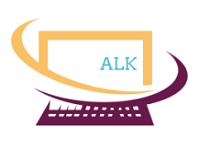Avast and AVG are two well-known antivirus software solutions developed by the same company, Avast Software. While they share a common origin and have similar goals of protecting your computer from malware and other threats, there are several differences between Avast antivirus and AVG antivirus. In this article, we will explore these differences in detail, covering aspects such as user interface, features, performance impact, pricing, reputation, and more.
- User Interface: Both Avast and AVG offer user-friendly interfaces that are designed to be intuitive and easy to navigate. However, there are some visual and layout differences between the two. Avast typically has a more modern and visually appealing interface, with vibrant colors and graphical elements. On the other hand, AVG tends to have a simpler and more straightforward interface, focusing on usability and ease of use. The preference for one interface over the other is subjective and may vary depending on personal taste.
- Features: Avast antivirus provides a broader range of additional features compared to AVG. Avast includes features such as a network security scanner, password manager, software updater, secure browser, Wi-Fi inspector, and a sandbox for running suspicious files in an isolated environment. These additional features are aimed at providing comprehensive protection and enhancing the overall security of your system. AVG, on the other hand, offers a more focused set of features, primarily focusing on antivirus and malware protection. While AVG lacks some of the extras found in Avast, it still offers essential functionalities like real-time scanning, web protection, email protection, and file shredder.
- Performance Impact: Both Avast and AVG are designed to have a minimal impact on system performance, ensuring that your computer remains responsive while running scans and providing real-time protection. However, some users have reported that AVG has a slightly lighter footprint compared to Avast. This means that AVG may consume fewer system resources and have a lower impact on system performance. It’s important to note that the performance difference between the two is usually minimal and may vary depending on your specific system configuration. Both Avast and AVG employ optimization techniques to minimize resource usage and maintain a balance between security and performance.
- Pricing and Licensing: Avast and AVG offer both free and paid versions of their antivirus software, catering to different user needs and budgets. The free versions provide basic protection against malware, while the paid versions unlock advanced features and additional security layers. The pricing and licensing options may vary between the two products, so it’s recommended to visit the official websites to get the most up-to-date information. Both Avast and AVG offer subscription-based licensing models, typically with options for monthly or yearly payments. Some versions may also include multi-device licenses, allowing you to protect multiple devices with a single subscription.
- Reputation and Testing: Avast and AVG have been around for many years and have established a solid reputation in the antivirus software market. They have undergone independent testing by reputable organizations such as AV-Comparatives and AV-Test, where they consistently perform well. These tests evaluate various aspects of antivirus software, including malware detection rates, false-positive rates, performance impact, and usability. Avast and AVG have both received certifications and awards from these testing organizations, demonstrating their effectiveness in protecting against malware and other threats.
- Company and Support: Avast and AVG are products of the same company, Avast Software. Avast is a well-established cybersecurity company with a global presence, offering a wide range of security products and services. The company has a large user base and a dedicated support team that provides assistance and guidance to users. AVG, being a part of Avast, also benefits from the resources and expertise of the parent company. Both Avast and AVG offer support through various channels, including online knowledge bases, forums, email support, and sometimes phone support. The availability and quality


